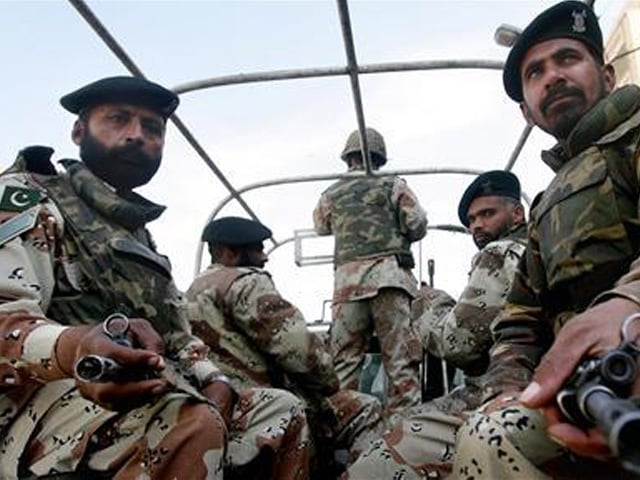The Government of Pakistan is in the process of carrying out a dialogue with the Tehreek-e-Taliban Pakistan (TTP) – they who have been hiding in Pakistan and have attacked the Pakistani armed forces, national strategic places and killed more than 50,000 people of Pakistan.
Despite these facts, the government continues to pursue these ‘negotiations’.
The recent Protection of Pakistan Ordinance (PPO) bill, approved by the presidential house, gives full support to the armed forces to take action against state enemies who are waging war against Pakistan from within the country’s borders.
Therefore, the question then is what was the need for such a bill when the democratically elected government can’t decide what action should be taken against the country’s enemies?
Currently, the PPO faces strong criticism from the civil society as well as from political forces of Pakistan. However, despite strong resistance from the opposition parties, the standing committee of Interior and Narcotics Control of the National Assembly approved the bill.
Dr Arif Alvi of Pakistan Tehreek-e-Insaf (PTI), Nabeel Gabol and Syed Asif Hasnain of Muttahida Qaumi Movement (MQM) and Essa Nori of the Balochistan National Party-Mengal (BNP-M) strongly opposed some clauses of the bill.
They demanded to put the bill on hold until their reservations were addressed. But the bill was passed since the majority of seats belonged to the Pakistan Muslim League-Nawaz (PML-N) members, who were in favour of passing the legislation. Pakistan Peoples Party (PPP) and JamiatUlema-e-Islam-Fazl (JUI-F) did not participate in the voting.
At a time when cases like the missing persons of Balochistan have brought the country closer to mass agitation, introducing such a bill will only cause further problems. Many human rights activists are calling Clause 3 a ‘license to kill’ for law enforcement agencies.
The aforementioned clause regarding use of armed forces or civil armed forces against the offence allows law enforcers to use necessary force after giving a prior warning to arrest the person who is ‘likely’ to commit offence. Furthermore, this clause grants security forces the permission to search their property or arrest a person without any warrant. This will increase political repression and animosity between groups and parties which is already increasingly apparent in provinces like Punjab and Sindh.
Clause 5 (1) describes the mentioned offences cognisable and non-bailable which is an absolute denial of the rights of citizens in a democratic country.
Clause 8 allows establishing as many special courts as needed which is against the Supreme Court’s 1998 judgment. By doing so, they are ignoring the risks associated with special courts’ corruption and the potential of being misused for political purposes – a common trait in Pakistan.
Clause 9(2) gives permission to security forces to conceal the location of the detained person. Human rights activist, Asma Jahangir, described this act as building Guantanamo Bay in Pakistan. According to her, clause 16 deals with the transfer of cases to the special courts and in process, denies the lawyers and family any access to the arrested person.
Human rights activist, Ansar Burney, of the Ansar Burney International Trust has rejected the ordinance and has demanded immediate withdrawal of it.
Clause 18, which allows the accused to appeal against the final judgment in the Supreme Court, was criticised by the MQM legislator on the grounds that the accused will not be able to afford expensive counsel in order to appeal in the Supreme Court.
Let’s not forget that the federal government handed the ‘law and order’ matter to the provincial government as per the 18th amendment. But, this ordinance seems like the federal government’s attempt to interfere in matters that fall under the provincial government’s jurisdiction.
The secretary general of the Human Rights Commission of Pakistan (HRCP), I A Rehman, reportedly said that the ordinance could be used to suppress movements for human rights in the country.
Let’s not forget Sarfaraz Shah’s case where an innocent guy was shot point blank by Rangers on suspicion of carrying arms. Once this ordinance is officially passed, such incidents will become even more common while they themselves (law enforcers) will walk around as free men.
Why do we need a dialogue process with the TTP when we have a bill that gives us a free pass to eradicate this problem?
If it’s evidence that is needed, haven’t they already waged war on the country by killing armed forces and attacking General Headquarters (GHQ) and other bases?
Or will the ordinance only be used as a tool for political repression?
Who will keep an eye on the process to make sure that the law is not being used for political victimisation as seen in the past with the creation of the Anti-Terrorism Courts (ATC)?
Why do we need peace talks if we have the Protection of Pakistan Ordinance (PPO)?
Clause 3 in the Protection of Pakistan Ordinance (PPO) seems more like a 'license to kill' for law agencies.



COMMENTS
Comments are moderated and generally will be posted if they are on-topic and not abusive.
For more information, please see our Comments FAQ